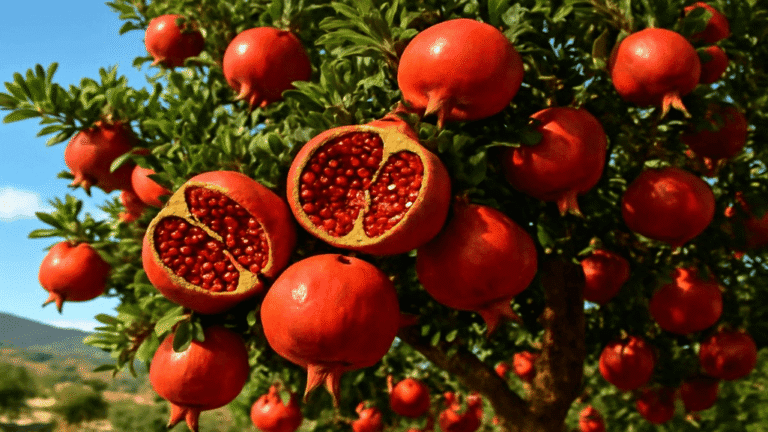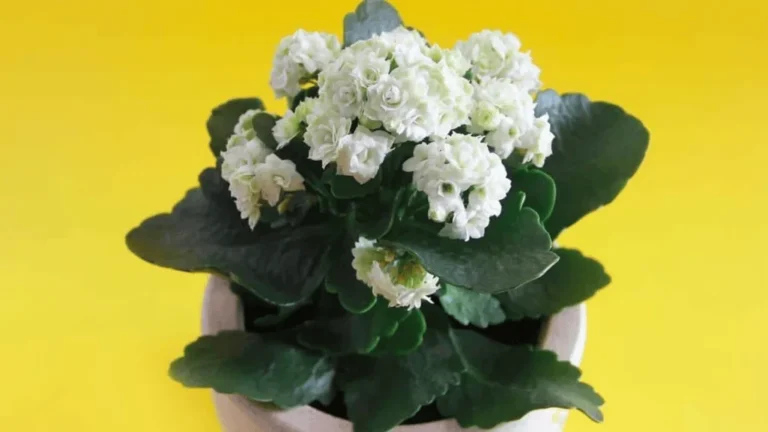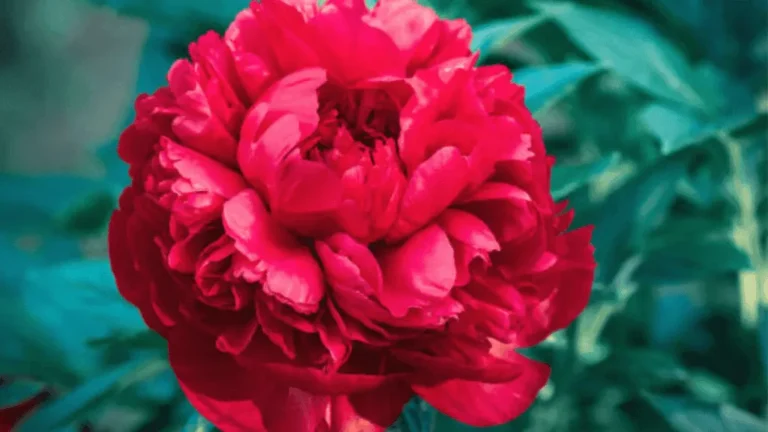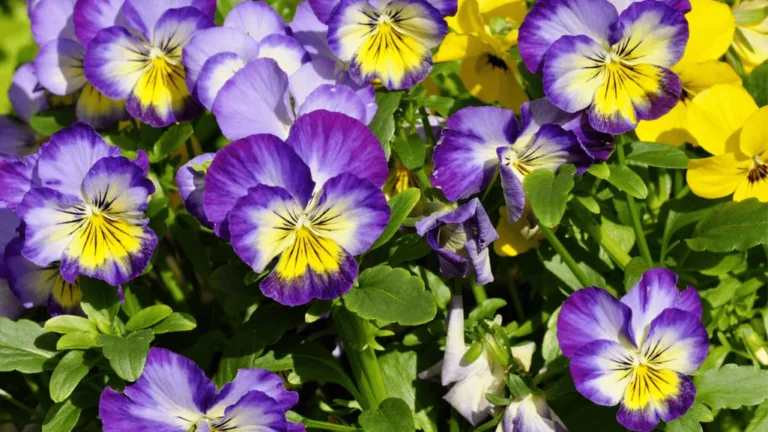Beautiful flowers gardenia Plants For Your homes

Meet the enchanting Rose campion (Lychnis coronaria or Silene coronaria). This perennial brings vibrant color and charm to any garden effortlessly. Known as Dusty miller, Mullein pink, and Clammy campion, it’s a favorite among flower gardeners.
Rose campion stands out with its stunning magenta or white flowers and silver-green leaves. This mix makes your garden a focal point, drawing admiration from everyone who sees it.
This plant is more than just beautiful; it’s also tough. It’s drought-tolerant and thrives in full sun and well-drained soil. Its easy care makes it perfect for water-wise, cottage, and various gardens.
Let Rose campion bring vibrant beauty and charm to your garden. Learn how it can transform your space into a colorful and peaceful haven. Discover more about perennial plants and create a mesmerizing garden.
Key Takeaways:
- Rose campion is a stunning perennial that adds vibrant color and unique silvery foliage to gardens.
- It is drought-tolerant, making it perfect for water-wise and low-maintenance gardens.
- Rose campion attracts pollinators like bees and butterflies, contributing to garden biodiversity.
- This plant is deer and rabbit resistant, ensuring its blooms remain intact.
- Rose campion self-seeds, allowing it to return robustly year after year with minimal effort.
Introducing the Vibrant Rose Campion
Get ready to be charmed by the Rose Campion, a garden gem that captures everyone’s attention with its bright magenta flowers. Known scientifically as Lychnis coronaria or Silene coronaria, this plant is a natural wonder. It combines vibrant flowers with striking silver leaves perfectly.
A Splash of Color and Versatility
Rose Campion fits into any garden style and color scheme with ease. It can be bold or soft, adapting to your garden’s look. It stands out in monochrome gardens or blends in with a mix of colors. NC State Extension says it’s great for dry spots and various soils, making it versatile for any garden.
Botanical Names and Common Aliases
This plant is known by many names, including Lychnis coronaria or Silene coronaria. It’s also called Mullein pink, thanks to its soft leaves. Some call it Bloody William, after its deep red flowers. And it’s also known as Lamp-flower, for its bright blooms that light up the garden.
| Botanical Name | Common Names |
|---|---|
| Lychnis coronaria | Mullein pink, Lamp-flower |
| Silene coronaria | Rose Campion, Bloody William |
Whatever you call it, Rose Campion is a garden treasure. Its bright colors and tough nature make it a top choice for garden lovers. It adds magic to any outdoor space.
Stunning Blooms and Foliage
Rose Campion (Lychnis coronaria) is a captivating garden plant. It offers vibrant blooms and striking foliage. This plant grows one to three feet tall, making it great for any garden bed or border.
Magenta and White Flower Varieties
Rose Campion has beautiful flowers in magenta and white. The magenta flowers are eye-catching, adding bold color to gardens. The white flowers offer a subtle, elegant charm, contrasting with the foliage.
The blooms appear in June and July, adding color in summer. To keep flowers coming, remove spent blooms to encourage more.
Unique Silver-Green Foliage
Rose Campion also has distinctive silver-green foliage. This foliage adds texture and interest, even when not blooming. The leaves have a suede-like texture, unlike lamb’s ears but less fuzzy. They grow in attractive clumps, contrasting with the flowers.
| Flower Color | Bloom Time | Foliage Texture |
|---|---|---|
| Magenta | June – July | Suede-like |
| White | June – July | Suede-like |
The silver-green foliage and vibrant flowers create a stunning display. Rose Campion is easy to care for and adds beauty to any garden. It’s a must-have for garden enthusiasts wanting charm and elegance.
Effortless Care and Maintenance
Rose campion is a low-maintenance and drought-tolerant perennial. It needs minimal watering and no fertilizer once it’s grown. This hardy plant is great for gardeners who want vibrant colors without a lot of work.
In its first year, rose campion needs regular watering to grow strong roots. But after that, it only needs water now and then. Make sure the soil drains well to avoid waterlogging, which can cause root rot.
Rose campion doesn’t ask for much when it comes to food. It does well in poor, dry soil and doesn’t need extra food if the soil is healthy. This makes it perfect for gardeners who like a natural, low-maintenance approach.
This plant is also tough against garden pests and diseases. It’s usually free from common garden problems. This means you can enjoy its beautiful flowers without worrying about garden troubles.
| Characteristic | Description |
|---|---|
| Watering | Minimal watering required once established |
| Fertilizer | No fertilizer needed if planted in healthy soil |
| Pests and Diseases | Generally resistant to common garden issues |
| Soil Preference | Thrives in poor, dry soils with good drainage |
Adding rose campion to your garden means you’ll get beautiful pink flowers and striking silver leaves with little work. This plant is a great choice for anyone who wants easy beauty in their garden.
Ideal Growing Conditions
Rose campion is a versatile plant that grows well in many conditions. It can thrive in full sun or partial shade, adding color to any garden. It prefers well-drained soil but can also grow in sandy or clay soils, making it easy to care for.
Sunlight and Shade Tolerance
Rose campion loves different light conditions. It does best in full sun, where it blooms brightly. But, it can also grow in partial shade, especially in hot places where it gets afternoon shade.
This makes it easy to place rose campion in your garden. You can put it in sunny spots or shady areas, like woodland edges.
Soil Preferences and Drought Resistance
Rose campion doesn’t mind the type of soil you have. It grows in sandy, loamy, or clay soils as long as it drains well. Make sure the soil isn’t too wet, as that can cause root rot.
Once it’s settled, rose campion can handle drought well. This makes it perfect for gardens that don’t get much water or areas that are often dry.
| Growing Condition | Ideal | Tolerable |
|---|---|---|
| Sunlight | Full sun | Partial shade |
| Soil Type | Well-drained soil | Sandy soil, Clay soil |
| Drought Resistance | High | – |
For the best results, plant rose campion in a sunny spot with good drainage. If your soil is heavy clay, add organic matter or use raised beds. Rose campion is easy to care for and adds beautiful color and charm to your garden.
Versatile Landscaping Uses
Rose campion stands out with its bright magenta or white flowers and silvery-green leaves. It fits well with many plants and color schemes in gardens. It’s perfect for both traditional cottage gardens and modern designs.
Complementing Other Plants and Colors
Rose campion makes your garden look better by matching well with other plants and colors. The white type looks great with euphorbias’ bright green leaves, creating a beautiful contrast. The magenta version is best with bold colors, not pale ones. Try different colors to make your garden look great.
Rose campion is great for planting with other plants. It covers up the leaves of spring bulbs as they fade. This keeps your garden looking good all season. Plant rose campion near tulips or daffodils for a beautiful garden all the time.
Masking Fading Spring Bulbs
Spring bulbs often fade away, leaving your garden looking bare. Rose campion can solve this problem. Its full foliage and blooms cover up the dying leaves of spring bulbs. Planting rose campion with bulbs ensures your garden stays beautiful all season.
| Companion Plant | Color Combination | Landscaping Benefit |
|---|---|---|
| Euphorbias | White rose campion with chartreuse foliage | Creates a striking contrast and visual interest |
| Bold, strong-colored flowers | Magenta rose campion with vibrant hues | Enhances and harmonizes the overall garden design |
| Spring bulbs (tulips, daffodils) | Rose campion with fading bulb foliage | Masks declining leaves and maintains a lively garden |
Using rose campion in your garden makes it look beautiful, strong, and flexible. It suits both cozy cottage gardens and sleek modern ones. Rose campion is a smart choice for any garden design.
Attracting Pollinators and Resisting Pests
Rose Campion draws bees and butterflies with its bright colors and sweet nectar. It’s a magnet for pollinators, making your garden a busy place. Bumblebees love it, using their fuzzy bodies to gather pollen.
Rose Campion can pollinate itself, but bees and butterflies make it even better. They help spread pollen, making the plants stronger and more diverse. This helps your garden and the whole ecosystem.
To help pollinators, add plants that bloom at different times. This gives bees and butterflies food all season. Make sure there’s water around for them to drink and rest. And, don’t use pesticides to protect these important insects.
Rose Campion also keeps pests away naturally. Deer and rabbits don’t like its fuzzy leaves and stems. So, your Rose Campion stays safe and blooms well.
This plant is also tough against garden diseases. It’s less likely to get sick, so you don’t need to use chemicals. Choosing Rose Campion means you get a plant that’s easy to care for, attracts pollinators, and fights pests and diseases.
| Companion Plant | Package Size | Seed Count | Price |
|---|---|---|---|
| Dwarf Snow White Hollyhock | 70mg | 25 seeds | $2.95 |
| Purple Coneflower | 1 ounce (covers 250 sq. ft.) | – | $9.95 |
| Texas Bluebonnet | 3g (covers 10 sq. ft.) | 100 seeds | $2.95 |
| Angel Wings Mix | 8mg | 40-50 seeds | $2.95 |
| Texas Paintbrush | 18mg | 350 seeds | $2.95 |
Adding Rose Campion to a garden with other pollinator-friendly plants makes a lively, beautiful space. Let nature’s helpers do their magic, and watch your garden thrive.
Propagation through Self-Seeding
Rose Campion is amazing because it can spread on its own, making sure your garden stays colorful year after year. This plant easily spreads its seeds, helping new plants grow with little work from you. Letting it self-seed can fill your garden with its bright magenta and white flowers, making it look enchanting over time.
Ensuring a Robust Return Each Year
After it blooms, Rose Campion forms seed pods that open, sending out hundreds of tiny seeds. These seeds can be blown by the wind or carried by birds to new spots in your garden. This way, Rose Campion comes back strong the next year, making your garden more beautiful.
To help Rose Campion self-seed well, follow these tips:
- Let some of the flowers stay on the plant to make seed pods and spread their seeds naturally.
- Rake the soil gently around mature plants in late summer or early fall to help seeds grow.
- Don’t use too much mulch or cover the ground too thick, as it can stop seeds from growing.
Controlling Spread in the Garden
Some gardeners love how Rose Campion spreads easily, but others might find it too much. If you want to keep your garden tidy, here are ways to manage its growth:
- Remove the flowers before they make seeds to stop them from spreading.
- Put mulch around the plant before the rainy season to block seeds from growing.
- Look for and pull out any unwanted seedlings early, when they are still young.
By balancing letting Rose Campion spread and controlling it, you can enjoy its beauty without it taking over. This way, you keep your garden looking great and let the plant naturally refresh itself.
Medicinal and Symbolic History
Rose campion is a vibrant flower with a long history. It’s known for its beauty and its uses in medicine and symbols. People have valued it for centuries.
In old times, its roots helped with digestion and breathing problems. The Greek doctor Dioscorides suggested using its seeds in wine for scorpion stings. This shows how versatile it was in medicine.
Rose campion also has deep symbolic meanings. It stands for love and beauty in many cultures. In Christianity, it was seen as the “eye of Christ” and could keep evil away.
It’s linked to the god Silenus in Greek myths, showing its connection to love and beauty. This makes it a symbol of love and romance.
Carl Linnaeus named it “Silene” after the froth of wine. This link to wine and Silenus adds to its symbolic history.
Rose campion appears in stories and poems, showing its beauty and deep meanings. It’s known as the “fairy flower” on the Isle of Man, where it’s seen as magical.
Looking into rose campion, we see it’s more than a pretty flower. Its history in medicine and symbols makes it special to many cultures and times.
Deadheading for Prolonged Blooms
To keep your rose campion flowering all summer and into early fall, you must deadhead regularly. Deadheading means cutting off spent blooms to stop seed pods from forming. This helps the plant focus on making more flowers instead of seeds.
Deadheading rose campion is easy with scissors or small clippers. Cut off the stem right above the first set of healthy leaves as each flower fades. This makes the plant produce more buds, giving you more blooms.
Techniques and Timing for Deadheading
Set aside time each week to deadhead your rose campion. Doing this from late spring to summer will keep it blooming into late summer. Make sure to remove the whole spent flower, including the seed pod at its base, to stop seed production.
| Plant | Deadheading Period |
|---|---|
| Hellebores | April to May |
| Bluebells | May |
| Forget-me-nots | May to June |
| Welsh poppy | May to Fall |
| Euphorbia characias subsp. wulfenii | May to June |
| Rose campion | June to Fall |
| Toadflax | June to Fall |
Encouraging Late Summer Flowering
To get more rose campion flowers in late summer, cut the stems back by half in August. This is especially good for cooler or shaded spots. This pruning can lead to more vibrant blooms in September.
Some plants, like euphorbias and rose campion, can spread quickly if not deadheaded. Deadheading is key to keep these plants under control in your garden.
By spending a little time each week deadheading your rose campion, you’ll enjoy their beautiful blooms longer. This adds color and beauty to your garden all the way into late summer.
Rose Campion in Folklore and Tradition
Rose campion has been loved by gardeners for many years. It’s not just pretty; it’s also tied to old stories and traditions. These stories and beliefs have spread across different cultures and times.
Ancient Greek Uses and Beliefs
In ancient Greece, rose campion was a big part of daily life and spiritual beliefs. People used its leaves as lamp wicks, lighting up homes and temples. They also thought that soaking rose campion seeds in wine could help against scorpion stings.
The Greeks linked rose campion to love and fertility. They thought the bright flowers could bring love and improve relationships. Young women wore rose campion garlands to draw in potential partners and ensure a happy marriage. This tradition has lasted, making rose campion a symbol of love and plenty in gardens today.
A Living Heirloom in Gardens
Rose campion is now a treasured heirloom in gardens all over the world. It’s often given away by gardeners, sharing its history and memories. When a gardener shares a piece of rose campion, they’re sharing a bit of gardening history.
This plant is known for its toughness and ability to spread. It’s a favorite in cottage gardens and wildflower fields. By caring for rose campion, gardeners join a long line of people who have cherished this plant for its beauty and resilience.
| Folklore and Tradition | Significance |
|---|---|
| Lamp wicks in ancient Greece | Durable leaves used for lighting |
| Scorpion sting remedy | Seeds soaked in wine believed to counteract venom |
| Symbol of love and fertility | Magenta flowers associated with attracting love |
| Pass-along plant | Shared among gardeners, carrying stories and memories |
| Cottage garden and wildflower meadow staple | Resilient and reliable, thriving in various conditions |
Rose campion is a key part of folklore and tradition, linking us to the past. By growing this plant, we enjoy its beauty and join its long story. Like the Echeveria elegans, rose campion shows us how nature can inspire, heal, and connect us across time and cultures.
Conclusion
Rose campion (Silene coronaria) is a standout plant that adds vibrant color and charm to gardens. Its magenta or white flowers and silver-green leaves are a dream for gardeners who want beauty without the work. This perennial thrives in many conditions, from full sun to partial shade, and can handle drought. It’s perfect for both new and seasoned gardeners.
Rose campion fits well with many plants and colors in the garden. Its tall stems are great behind shorter plants, and it comes back strong every year. It’s ideal for creating a romantic garden or a place that attracts bees, butterflies, and hummingbirds.
Adding rose campion to your garden means enjoying beautiful colors and textures with little work. This plant has been loved for centuries and still charms today’s gardeners. So, bring some vibrant color to your garden with the magical rose campion. Its easy care and adaptability make it a must-have for every gardener.



























